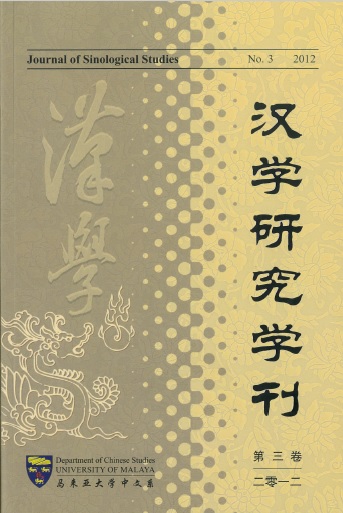王阳明“五经亦史“说的当时意涵及其在中晚明时期的认知 The Original Meaning of Wang Yangming's "Five Classics Are All Histories" and Its Interpretations in the Mid and Late Ming Dynasty””
Abstract
During the early twentieth century social transformation that took place between the time of the end of the Qing Dynasty and the rise of the Republican in China, the gradual establishment of the western academic system and the modernization of local knowledge had greatly affected the way Chinese intellectuals conceived of their own history and culture. The abandonment of the civil service examination system in 1905 was a critical turning point, when the breakdown of classical studies and the increasing dominance of historical studies became the prominent social and cultural phenomenon of the time. The orthodox position of the Classics was challenged and later replaced by historical studies, which were promoted to the top of literati learning by intellectuals in this period. In this environment, Wang Yangming (1472-1529) and Zhang Xuechang (1739-1801), two famous classical literati, became popular figures among the twentieth century Chinese intellectuals. In their own times, Wang Yangming argued that 'The Five Classics are all Histories' (wu jing jie shi) and Zhang Xuecheng later asserted that 'The Six Classics are all Histories' (liu jing jie shi). Their statements were considered the precursors of the relationship between classical and historical studies in the twentieth century. This article focuses on Wang Yangming's statement that 'The Five Classics are all Histories' to contextualize Wang Yangming's original meaning in its contemporary intellectual environment and compares with intellectuals' interpretations in later periods. Based on the comparison of the similarities and differences between Wang Yangming's conception and other later interpretations, this article shows how the understanding of traditional culture was reconstructed in the context of early twentieth century intellectualtransformation from classical studies to historical studies. This article argues that the statement, 'The Five Classics are all histories,' should be understood as 'The Five Classics include Histories' (wu jing han shi). In the context of Wang Yangming's writing, there is no evidenc to show that he had any intention to challenge th eorthodox status of the Classics. nor he had agreed that historical studies should be more important than classical studies. More importantly, he did not believe that the Clasics should be treated as the object of historical studies, which differs essentially with the interpretations of 'The Five Classics are all histories' by scholars in later periods and especially in the twentieth century. Therefore, we should not believe in the relationship between classical and historical studies in the middle and late Ming Dynasty by simply following intellectual interpretations of the twentieth century. It was these intellectuals, and not Wang Yangming himself, who projected their idea of 'The Five Classics are all Histories' to confirm their own expectations of reconstructing the modern academic system in China in the twentieth century.
Keywords: Wang Yangming, Zhang Xuecheng, The Five Classics are all Histories, The Intellectual History of Ming Dynasty


